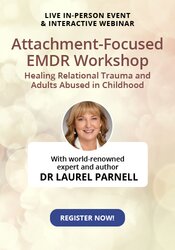Enrol in an online course today for flexible, self-paced learning—no fixed schedule required. Plus, enjoy lifetime access to course materials for convenient revisiting.
Holiday in Sight? Get to Work on Self-Compassion!
18 July, 2022

It’s holiday season! A time when therapists far and wide rejoice and look forward to a few weeks relaxing and recharging their battery. But as tantalising as this sounds, I believe that many therapists find it hard to slip into the holiday mind-set.
To start with, there can be concerns around the consequences of taking a holiday. For example, fears that our clients may be disappointed or angry at us for leaving, or that they’ll become vulnerable or risky whilst we’re away. We can also have a personal sense of letting them down, or abandoning them, which may be rooted in some of our own fears and insecurities.
But although it may seem surprising at first, for some therapists this difficulty is linked to problems with compassion.
One way to reflect on this is to consider the different directions compassion can flow in. In Compassion Focused Therapy (CFT), we talk about the three flows of compassion: the compassion we can have for others, compassion from others, and self-compassion.
One of the struggles that some therapists experience is that the flow that has been practised the most – and therefore is most automatic and comfortable – is towards others, and in particular, their clients. In contrast, the ability to receive compassion from others, and in particular to be compassionate to oneself, is often stunted, underdeveloped or blocked.
How does it help to bear this in mind as we approach holiday season? Well, it’s about balance. If you’re very strong at giving compassion to others, but very poor at holding your own needs and wellbeing in mind (self-compassion), it may be that you end up prioritising others, rather than yourself.
Sometimes this balance is so skewed that it leads to something called submissive compassion, where we try to be kind and caring to our clients so that they’ll like us, or that they won’t get angry or upset with us. This can be the case particularly when a therapist is not just unpractised in self-compassion, but may have fears about being compassionate with themselves (e.g. “it’ll drop my standards”, “I’ll become selfish or self-focused”).
So how could we bring change to this? Well, a simple first way is to try out the following steps:
Bring to mind someone (an adult) that you really care about.
Next, imagine that they are really tired after many months of work, but are finding it hard to take time off for holiday as they feel guilty about letting people down.
Given your care and kindness towards this person, what would you say to them that might help them prioritise their own wellbeing and needs? What would help them to tolerate their concerns about letting people down?
Hold in mind how you might show this person your kindness and care as you speak to them (e.g. what your facial expression and voice tone would be like).
Finally, instead of another person, try to repeat these wise words to yourself, whilst holding on to a warm, caring inner voice tone and friendly facial expression.
So, in preparation for holiday season – but more generally to foster a more caring approach to yourself as a therapist – maybe it’s helpful if you start to train and strengthen your compassionate mind.
For more information and exercises around self-compassion visit Balanced Minds or the new Self-Compassion App.



![Ceo63b3w0uabhly4ycu3w[1]](/media/wweaj4n3/ceo63b3w0uabhly4ycu3w-1.jpg?width=410&height=410&v=1da9ffc7ac3acb0&format=webp&quality=80)














